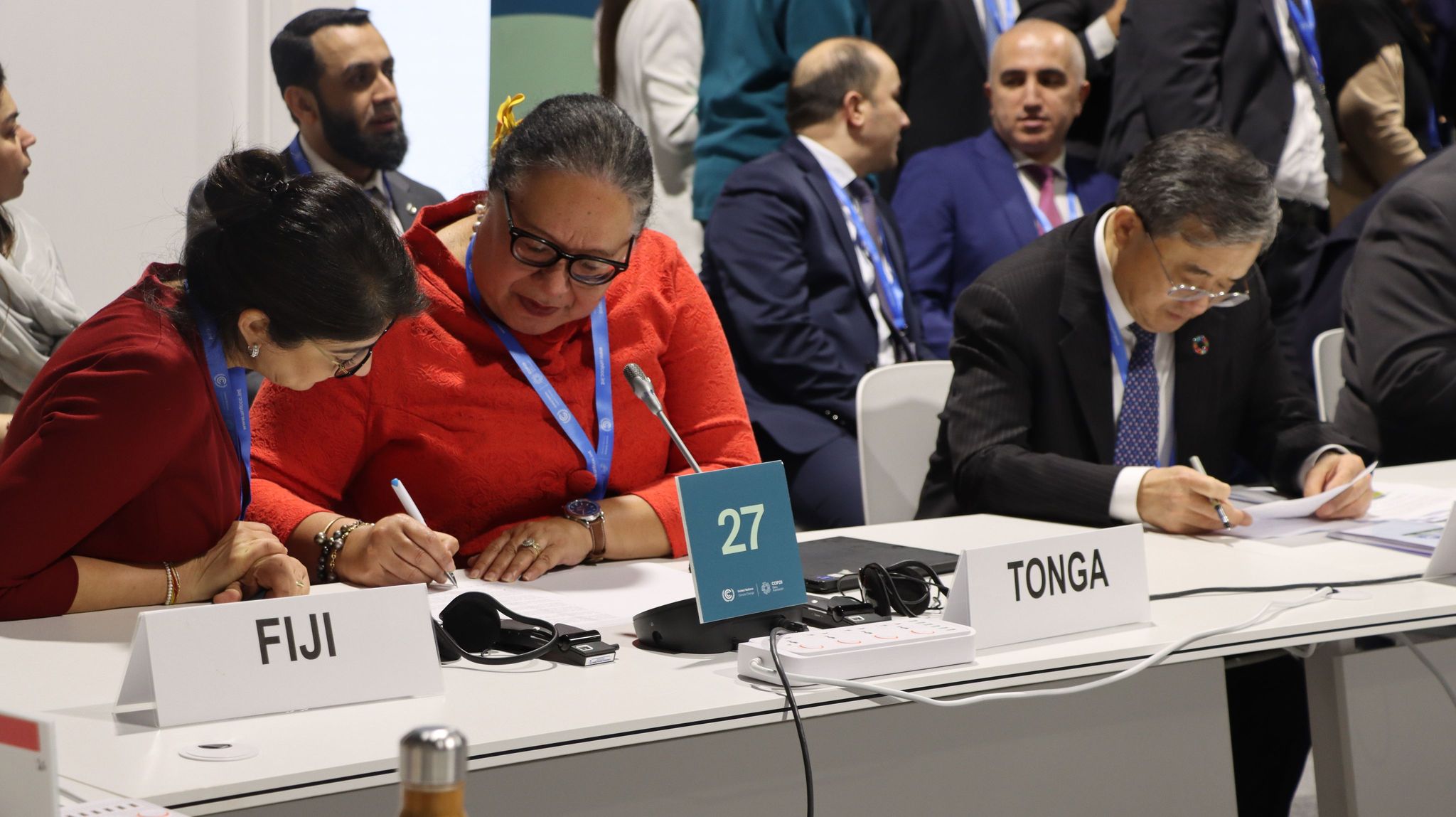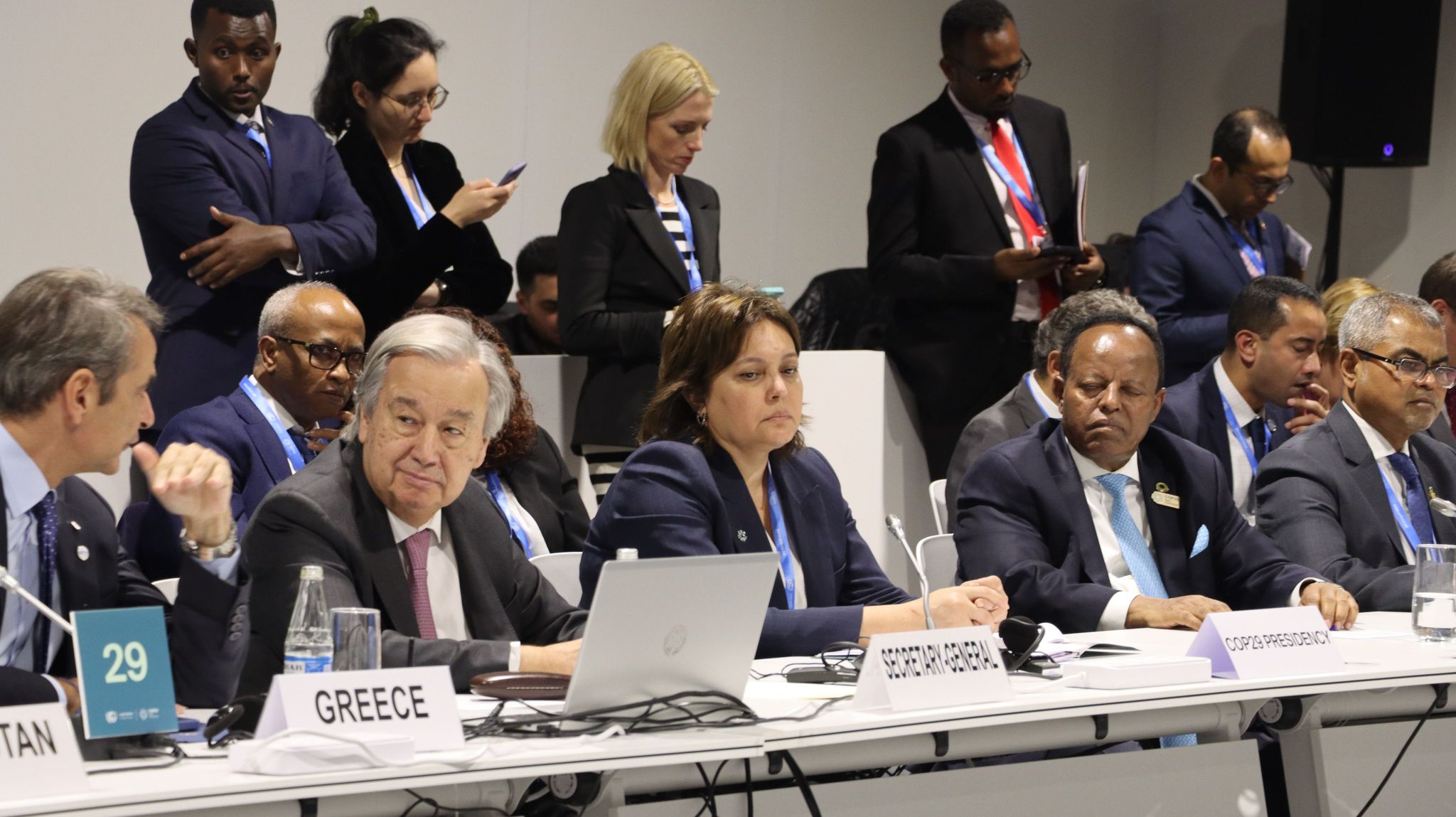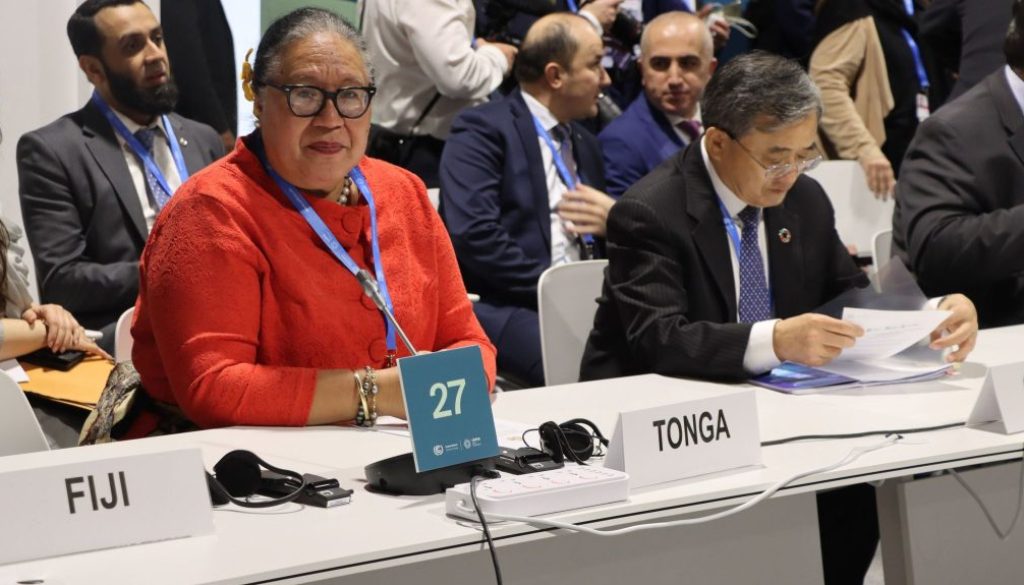Tonga Reinforces Commitment to Early Warning Systems at High-Level United Nations Secretary General
Wednesday, 13 November 2024 – Baku, Azerbaijan
Tonga’s Minister for MEIDECC, Hon. Fekitamoeloa ‘Utoikamanu, delivered a compelling address at the “Early Warnings for All” high-level event hosted by the United Nations Secretary-General. Highlighting Tonga’s heightened vulnerability to natural disasters, Hon. ‘Utoikamanu underscored the critical need for robust disaster preparedness and resilience-building initiatives.
Tonga has faced severe natural disasters in recent years, including two Category 5 cyclones and the devastating Hunga Tonga-Hunga Ha’apai volcanic eruption and tsunami in 2022. These events have inflicted significant economic damage, emphasizing the urgent necessity for improved disaster response and infrastructure.
Since the launch of the Secretary General’s Early Warning for All initiative in Sharm El Sheikh, Tonga has been among the first 30 countries to commit fully to this life-saving program. The introduction of Multi-Hazard Early Warning Systems (MHEWS) has significantly enhanced Tonga’s capabilities to monitor and respond to natural hazards. Supported by strong disaster risk management (DRM) legislation, these systems provide timely and actionable warnings, facilitate regional data sharing, and ensure resource allocation for effective disaster response. The investment in MHEWS not only saves lives and protects infrastructure but also mitigates the high costs associated with emergency response and recovery.

In August this year, Tonga commissioned its first-ever mobile phone community early warning and response application during the 53rd Pacific Leaders Meeting. This innovative tool, developed through the Climate Risk Early Warning System (CREWS) financing facility and in partnership with the World Meteorological Organisation (WMO) and the Secretariat of the Pacific Regional Environmental Program (SPREP), enables two-way communication between disaster management agencies and remote communities, thus strengthening Tonga’s early warning systems.
Tonga is also actively reviewing its meteorological legal and regulatory frameworks to enhance its capability for delivering people-centered, end-to-end multi-hazard early warning systems. Additionally, the government is operationalizing the Multi-Hazard Early Warning Policy established in May of the previous year.
In July, with the assistance of the World Meteorological Organization, the United Nations Office for Disaster Risk Reduction, and other partners, Tonga completed nationwide consultations for the Early Warnings for All roadmap. During the same Pacific Leaders Meeting, the Secretary-General commissioned Tonga’s first Weather Radar, marking a significant milestone under the Weather Ready Pacific Program.

The Weather Ready Pacific Program, a decade-long Pacific-owned and led initiative, aims to address extreme weather events in the region by improving monitoring, forecasts, warnings, communications, service delivery, and capacity building in Pacific Small Island Developing States (SIDS). Hon. ‘Utoikamanu expressed deep gratitude for the initial funding support from the Governments of Australia, New Zealand, and the United Kingdom and urged continued investment in this critical program.
In her closing remarks, Hon. ‘Utoikamanu emphasized the importance of addressing the early warning needs for heatwaves, particularly marine heatwaves, which increasingly impact the tropical Pacific.

